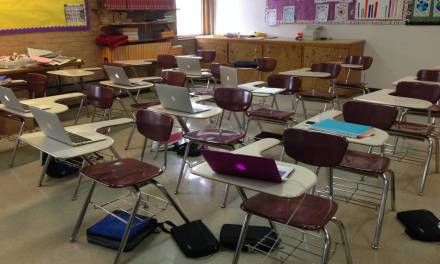According to the BBC, around half of pupils have not been engaged while learning remotely during lockdown.
It means, as schools wait to reopen fully in September, that students will be a long way behind in their learning.
The report by the Education and Training Inspectorate (ETI) also considered plans schools have for remote learning during the 2020-21 academic year.
The Department for Education has warned that many pupils will only be able to attend school part-time in September. So with all these factors considered, what can be done to improve engagement in learning remotely?
Learning remotely: a variation in pupil engagement
The ETI report says:
There is variation in pupil engagement with remote learning across year groups and schools. Some pupils disengaged significantly and this gives serious cause for concern.
There are instances of as much as half of a year group not submitting work despite staff following up with letters and phone calls home.
This is time consuming and has not necessarily impacted positively on pupil engagement.
There are particular concerns around pupils who require additional help and those from disadvantaged backgrounds.
It is reported that the pupils who struggle are not necessarily asking for help.
What are the challenges posed by online learning?
Schools have said that remote learning has posed a number of challenges:
- Keeping pupils motivated and engaged
- Deficiencies in access to Information Technology (IT) for some pupils
- Connectivity issues in both rural and urban areas
- Families where there was only one device to be shared among adults and children
Why has there been a decline in children’s motivation and engagement?
Some school leaders have seen have seen a decline in children’s motivation and engagement with remote learning since March.
Some families do not have computers or tablets, printers, or internet connection.
Schools have lent out school computers, however getting them working in homes has proved difficult in some cases.
The Department for Education (DfE) had launched a scheme to provide about 3,000 laptops and digital devices to pupils without them – but demand has exceeded more than the number of devices available.
In April, at an Education Select Committee meeting with Ofsted, Amanda Speilmen (Chief Inspector) said the Government had ‘no expectation on learning‘ during the coronavirus pandemic.
A report by the National Foundation for Educational Research (NFER) last month revealed alarming statistics linking to pupil engagement.
In deprived areas only 30% of pupils are returning work. Overall, only 42% of pupils returned their last piece of schoolwork.
There has been lack of enforcement on learning which has resulted in only 17% of pupils contributing more than four hours of work every day – with pupils on average spending 2.5 hours per day on education.
What can be done to improving student motivation?
EDClass can help improving engagement through a tailored learning pathway and a sophisticated pupil tracking and feedback system.
Personalised learning means pupils can undertake work which is relevant to them – it improves a sense of belonging. Skills gap analysis helps to identify pupils’ strengths and weaknesses.
The sophisticated tracking system means you can identify whether pupils are undertaken work, receive feedback on pupil performance and compare students across the year group.
Plus, safeguarding is assured through a number of mechanisms. Through eyes-on learning pupils are required to be on webcam for safeguarding purposes, and if there are any issues our team of highly trained staff can raise these with the schools. Pupils also have the opportunity through interactive lessons and chat support, to raise any safeguarding issues. All EDClass staff are enhanced DBS checked.
EDClass has also been inspected by Ofsted. Read the report here.
For more information or to request a demonstration, call 01909 568 338.











